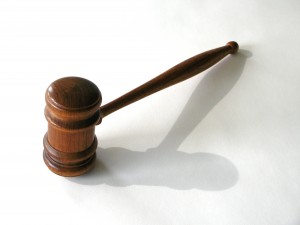 “My childhood ambition to become a lawyer had nothing to do with middle-class respectability and comfort. I understood the lawyer’s job as being to help people. I understood the law as a force for good, for protecting the community, for upholding order against the threat of chaos, and for resolving conflict. The law gives structure to most of our relationships, allowing us all to promote our interests at once, in the most harmonious way. And overseeing this noble purpose with dispassionate wisdom was the figure of the judge.
“My childhood ambition to become a lawyer had nothing to do with middle-class respectability and comfort. I understood the lawyer’s job as being to help people. I understood the law as a force for good, for protecting the community, for upholding order against the threat of chaos, and for resolving conflict. The law gives structure to most of our relationships, allowing us all to promote our interests at once, in the most harmonious way. And overseeing this noble purpose with dispassionate wisdom was the figure of the judge.
All kids have action heroes: astronauts, firemen, commandos. My idea of heroism in action was a lawyer, the judge being a kind of superlawyer. The law for me was not a career but a vocation.”
In her 2013 memoir My Beloved World, Justice Sonia Sotomayor describes her childhood dream to become a lawyer as a calling. Her understanding of herself as a lawyer and judge is deeply rooted in a sense of vocation that drives her professional work.
What would happen if more professionals understood their work as a calling? The Seminar on Faith, Vocation and the Professions is exploring the relationship between vocation and profession to retrieve a sense of calling and the common good that could promote greater well-being among professionals, their institutions, and the culture at large.
As Seminar member William Sullivan describes in Work & Integrity: The Crisis and Promise of Professionalism in America, professions are more than technical expertise. They are organized around values of integrity and social responsibility that support a sense of calling among professionals.
Questions of professional identity and practice are often, at their core, questions of vocation: How do I integrate who I am with what I do? How can my professional work reflect my personal beliefs? What happens when my faith challenges my work, or my work challenges my faith? Yet churches have not always given professionals the attention, resources, or encouragement needed to cultivate a sense of calling in relation to their work.
We hope to encourage congregations to help their members explore the intersections between vocation and profession, for example:
- Both evoke essential questions of identity, purpose, self-expression, and the basic existential search for meaning.
- Both involve duty, responsibility, obligation and sacrifice.
- Both call attention to the needs of the other in order to ground the expert’s work in a spirit of service.
- Both place the individual’s particular tasks and responsibilities within the larger context of the common good.
When asked to define the relationship between their work and their values, some professionals —like Justice Sotomayor—are able to articulate a clear sense of vocation. Other professionals struggle to see how their career could be a calling or how their faith could influence their work.
Likewise, some people share Sotomayor’s crystal-clear sense of being called to a profession from an early age. Others grow into a sense of vocation over the ups and downs of a lifetime of work and wisdom.
Each Christian congregation likely gathers the whole range of these perspectives in its pews, although pastors and parishioners alike are often ignorant of the complex professional decisions and dilemmas faced by those who stand next to them on Sundays.
For all these reasons, the Seminar on Vocation, Faith and the Professions understands the effort to connect vocation and profession as one of the most pressing and promising questions facing today’s communities of faith in the 21st century. When ancient wisdom on vocation meets contemporary challenges faced by professionals, the conversation of what it means to be called by God takes on new and urgent meaning.
What do you think? Do you have a sense of calling as a professional? How would you define the relationship between vocation and profession?
Like this post? Subscribe to have new posts sent to you by email the same day they are posted.



Yes! At times it amazes me how fitting this work as an editor is for me. It is not the vocation I thought I had, but, as I discerned a different vocation, I realized that leaving where I am was not at all what I was called to do. Somehow I landed precisely where I belonged. God nudged me along the way to the place where I am called to be. In high school and college, and even in graduate school, I said that if a teaching position in theology opened up at my high school, I’d drop everything to apply. Several weeks ago, that job was posted. And as I read through the job description, I realized that I have absolutely no desire to do that job.
Sometimes I think we have an idea of what we think our vocation will be, but stopping to look at what our vocation is at the moment can be challening. And yet, it is also freeing. I am called, right now, to be in this place doing this work with these people. That could, however, change. I do not ancipate that it will any time soon, but discernment has taught me that the Spirit moves. She is fluid, and she asks us to be fluid as well: to pay attention, be open to new ways in which we are called.
I am, admittedly, disgustingly pleased with my work. Even the days when it is tedious and boring and frustrating, I am grateful for this ministry. I pray that others find this kind of fulfillment in what they do.